Many food and drinks like coffee are high in histamine and may result in unpleasant symptoms. Some individuals struggle with histamine intolerance or sensitivity due to imbalances in the body.
Jump to:
Severe allergies, auto-immune disorders, and Mast Cell Activation Syndrome (MCAS) can also contribute to these sensitivities. If you struggle to tolerate certain foods, coffee, or caffeine, it is possibly due to a histamine imbalance or sensitivity or high levels of histamine in your food. As a holistic nutrition specialist and someone who struggled with histamine sensitivity for several years, I've studied the effects of histamine in foods on the body and overall well-being. I've found that it does make quite a difference and there are ways to still enjoy many of our favorite foods in the process- even coffee! For more information on probiotics that are low in histamine, check out our article here!
*Consult a doctor if you are having symptoms that are concerning to you. This article is for informational purposes only. It is not intended as medical advice. ALWAYS discuss changes in diet and healthcare with a qualified healthcare professional.
Read on to find out the histamine content of coffee, the effects of caffeine on the release of histamine in the body, histamine intolerance symptoms, and what you can do to circumvent these uncomfortable symptoms! Hint: There is hope!
Histamine in Coffee
Many coffee brands have varying levels of histamine and it may depend on the fermentation process. Before the roasting process, some suppliers ferment the coffee beans in order to remove the shell or skin of the fruit.
Inside the fruit are the seeds of the fruit which are known as the coffee beans.
Fermentation is widely known to increase histamine production. The longer the fermentation process, the higher the amount of histamine will be present.
High histamine levels can cause allergic reactions, increased seasonal allergies, food intolerances, and other immune responses and health issues in individuals with histamine sensitivity.
There are varying amounts of histamine amongst brands in the coffee industry and many high-quality organic coffee brands have lower levels.
Almost all coffee has histamine in small amounts.
Despite being a low histamine coffee, some individuals can still have a histamine reaction. This can be due to a severe intolerance, or the caffeine content.
One brand, Purity Coffee, claims to be free of histamine, pesticides, and mycotoxins (mold) as well as being low in acid.
 Purity Coffee CALM Decaf Me...Shop on Amazon
Purity Coffee CALM Decaf Me...Shop on Amazon
 Purity Coffee FLOW Medium R...Shop on Amazon
Purity Coffee FLOW Medium R...Shop on Amazon
 Purity Coffee EASE Dark Roa...Shop on Amazon
Purity Coffee EASE Dark Roa...Shop on Amazon

Caffeine and Histamine
The presence of caffeine may trigger histamine issues in sensitive individuals. This is because caffeine increases histamine release which can trigger an inflammatory reaction.
Caffeine can also block the Diamine oxidase enzyme (DAO), which is a natural enzyme that helps digest and clear histamine from the human body.
Some are deficient in this enzyme which is one of the factors in those with intolerances. Fortunately, there are ways to help encourage the production of DAO in the body. See below for some natural ways and supplements that can help!
In the meantime, it may be a good idea for those with severe symptoms to go easy on caffeine as well as consider a low histamine diet. Check out this article on Celsius Energy Drink vs Coffee to learn more about the effects of caffeine.
*Disclaimer: This is not medical advice. ALWAYS discuss any changes to your diet or healthcare with your qualified healthcare provider.
Decaffeinated Coffee
One option for coffee lovers is to consider decaffeinated coffee that is low in histamine. It is important to know that there are two different processes that are used to decaffeinate coffee.
One uses chemical solvents and high temperatures to remove caffeine. These conventional processes are harmful to anyone's health and can even increase histamines in the coffee during the process.
The other method, the swiss method, is a much safer one. It involves just water and time. It uses osmosis to dissolve and remove the caffeine.
You will want to make sure the decaf coffee you purchase uses this in order to avoid unintended increases in symptoms.
 Purity Coffee CALM Decaf Me...Shop on Amazon
Purity Coffee CALM Decaf Me...Shop on Amazon
Low Histamine Coffee
Another option to reduce histamine and caffeine intake and still receive similar benefits to the usual morning cup of coffee is a natural healthy alternative to coffee.
There are several brands that came up with a healthy herbal blend to mimic coffee without the histamines or caffeine. Proponents even claim that it tastes like coffee.
It is usually made with Dandelion root, Chicory Root, Rye, and Barley extracts. It often comes powdered and can be mixed with hot or cold water or plant milk for a healthy energy boost without the negative effects that some coffee can cause for sensitive individuals.
These ingredients have multiple health benefits in addition to the energy boost they offer without the caffeine crash. It may be worth a try!
 Dandy Blend Instant Herbal ...Shop on Amazon
Dandy Blend Instant Herbal ...Shop on Amazon
 Nummy Creations Vanilla Ins...Shop on Amazon
Nummy Creations Vanilla Ins...Shop on Amazon
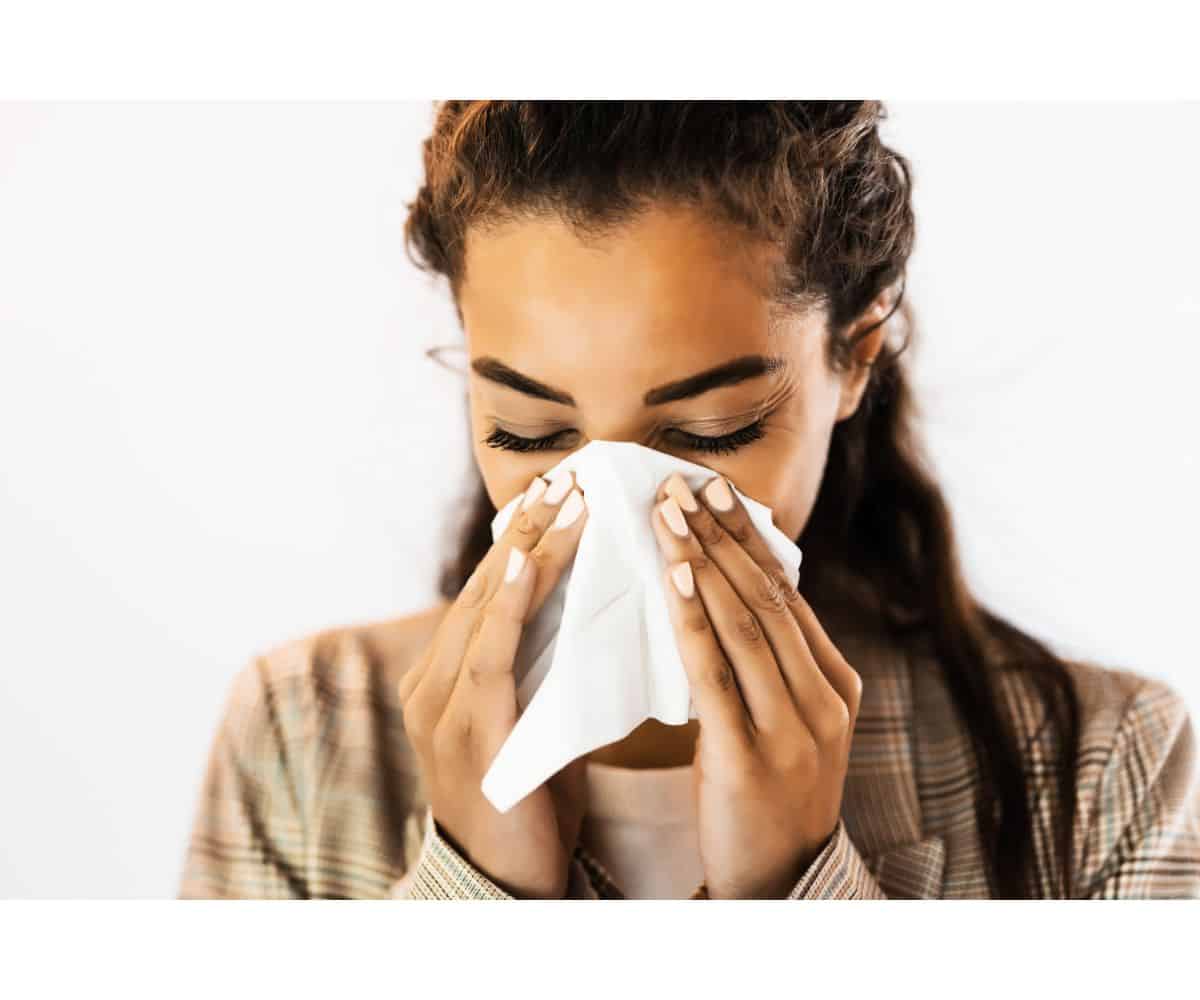
What is Histamine?
Histamines are natural chemical compounds that play an important role in regulating bodily functions in the digestive system, immune system, and nervous system. It is part of the body's self-protective mechanisms.
When an invading substance enters the body's system, histamine spikes as an allergic response to alert the body to a potential threat. It does this, in part by releasing large amounts of histamine.
When this happens we may experience the effects of histamine. These may include allergy symptoms like runny nose, nasal congestion, shortness of breath, and even hives.
When the threat is neutralized or removed, DAO comes in to clear and regulate the excess histamine levels and bring the body back into balance and recovery.
We may also ingest histamines in varying amounts within different foods that we eat. DAO also helps the body to digest and dissolve the histamine in these foods and remove it from the body.
When DAO levels are low, the body can harbor too much histamine, creating an intolerance to histamine-rich foods.
Symptoms of Intolerance
Histamine intolerance is an impaired ability of the body to digest or degrade histamine which causes a buildup and potential histamine toxicity.
This results in multiple sensitivities and often unexplained allergic reactions that seemingly come out of nowhere. Food allergies may develop sensitivities to certain environments that didn't previously cause any issues.
Intolerances and imbalances of histamine can produce vague and common symptoms that are similar to seasonal allergies or even seemingly unrelated. Nevertheless, it usually mimics seasonal allergies or allergic reactions. Some of these symptoms that histamine triggers may include:
- Food sensitivities, intolerances, or allergies
- Nasal congestion
- Excessive sneezing and nasal irritation
- difficulty breathing
- rapid pulse or heart palpitations
- Digestive disruptions like IBS, cramps, or bloating
- Skin conditions like Eczema, Rosacea, Psoriasis, or Hives
- Excessively itchy skin with no clear cause
- Flushing, especially in the face, chest, or hands
- Blood pressure regulation issues, either too high or too low
- Inability to regulate body temperature
- Dizziness
- Fatigue
- Headaches
- Insomnia
- Swelling/Edema
- Irritability, Anxiety, or Depression
There are potentially other symptoms that may be related to histamine imbalances. It is always best to discuss any health concerns with your doctor.
Your doctor may be able to run some tests and recommend some medications. Often, allopathic doctors will prescribe antihistamines to help regulate the excess of histamines rapidly.
Naturopathic or Functional doctors may want to run more tests to get to the root cause of the issue and potentially recommend supplements or herbs.
Either doctor will likely recommend a histamine-free diet or an elimination diet to determine if histamine intolerance and high histamine foods are an issue. You may also want to consider eating foods that naturally increase DAO or taking DAO supplementation.
Ways to Naturally Increase DAO
As mentioned above, the primary enzymatic function of diamine oxidase (DAO) is to digest and break down excess histamine. If you struggle with histamine intolerance or sensitivity, it may be due to a lack of diamine oxidase in the body.
Luckily, there are a few ways to increase this enzyme to help neutralize histamine from food and drinks and relieve symptoms.
DAO supplements have the diamine oxidase digestive enzyme that can help the body handle the load of high-histamine foods. It is typically recommended to take the supplement 15 minutes before a meal (or your morning coffee!)
 Omne Diem Histamine Digest ...Shop on Amazon
Omne Diem Histamine Digest ...Shop on Amazon
 NATURDAO - 1,000,000 HDU - ...Shop on Amazon
NATURDAO - 1,000,000 HDU - ...Shop on Amazon
There is also nutritional support that can help to encourage the production of the natural DAO enzyme in the body. This works best when combined with a low histamine diet while the body regulates itself and returns to balance.
Researchers have found evidence that suggests a balanced diet with minerals zinc, magnesium, phosphorus, copper, and iron along with vitamins B12, B6, and omega 3 fatty acids helps to encourage natural DAO production and activity.
Legume sprouts, specifically green pea sprouts contain high amounts of DAO. Chickpeas and legumes are also good sources of DAO.
The sprouts contain high levels of DAO as they naturally grow their plant structures.
So it is important to catch the seedlings when they are in the early sprouting phases. It is also suggested to grow them in darkness to preserve the enzyme's highest concentrations. Many store-bought pea sprouts are grown in sunlight and may not have the highest levels of DAO. Whenever possible, sprouting at home is best!
Natural Anti-Histamines
Aside from increasing DAO levels through food and enzyme supplements, another natural option is anti-histamine herbs and supplements.
These contain anti-inflammatory and anti-histamine properties. Many come in proprietary blends or herbs, antioxidants, and vitamins that work synergistically to help the body regulate and inhibit histamine production while providing the body with nutritional support from their antioxidant properties. Most antihistamine supplements are composed of:
Vitamin C- The water-soluble immunity superhero is an anti-histamine too!
Quercetin- An antioxidant flavonoid and polyphenol that helps to inhibit histamine production and reduce inflammation.
Stinging Nettle- An herb that reduces symptoms of allergies, is packed with antioxidants, vitamins, and minerals.
Bromelain- A potent anti-inflammatory with digestive enzymatic properties that work well to support the process of relieving the symptoms of a histamine reaction.
These nutrients and herbs are highly effective for many to relieve allergic reactions, as well as prevent and relieve histamine intolerance symptoms for many sensitive individuals!
My favorite natural anti-histamines to have on hand are ones that contain all 4 of these ingredients!
 ForestLeaf - Quercetin 500m...Shop on Amazon
ForestLeaf - Quercetin 500m...Shop on Amazon
 Mt. Angel Vitamins Querceti...Shop on Amazon
Mt. Angel Vitamins Querceti...Shop on Amazon
 Histamine Block Capsules fo...Shop on Amazon
Histamine Block Capsules fo...Shop on Amazon
If the histamine in coffee or other foods has triggered a negative histamine response and unpleasant symptoms, it may be beneficial to make some shifts in order to feel better! Discuss your options with your doctor and give some of these natural alternatives a try!
Have you tried any of these solutions to histamine intolerance symptoms in coffee and other foods? What worked for you? Let us know in the comments below! We wish you a happy and healthy day 🙂
Be well,
Natalie

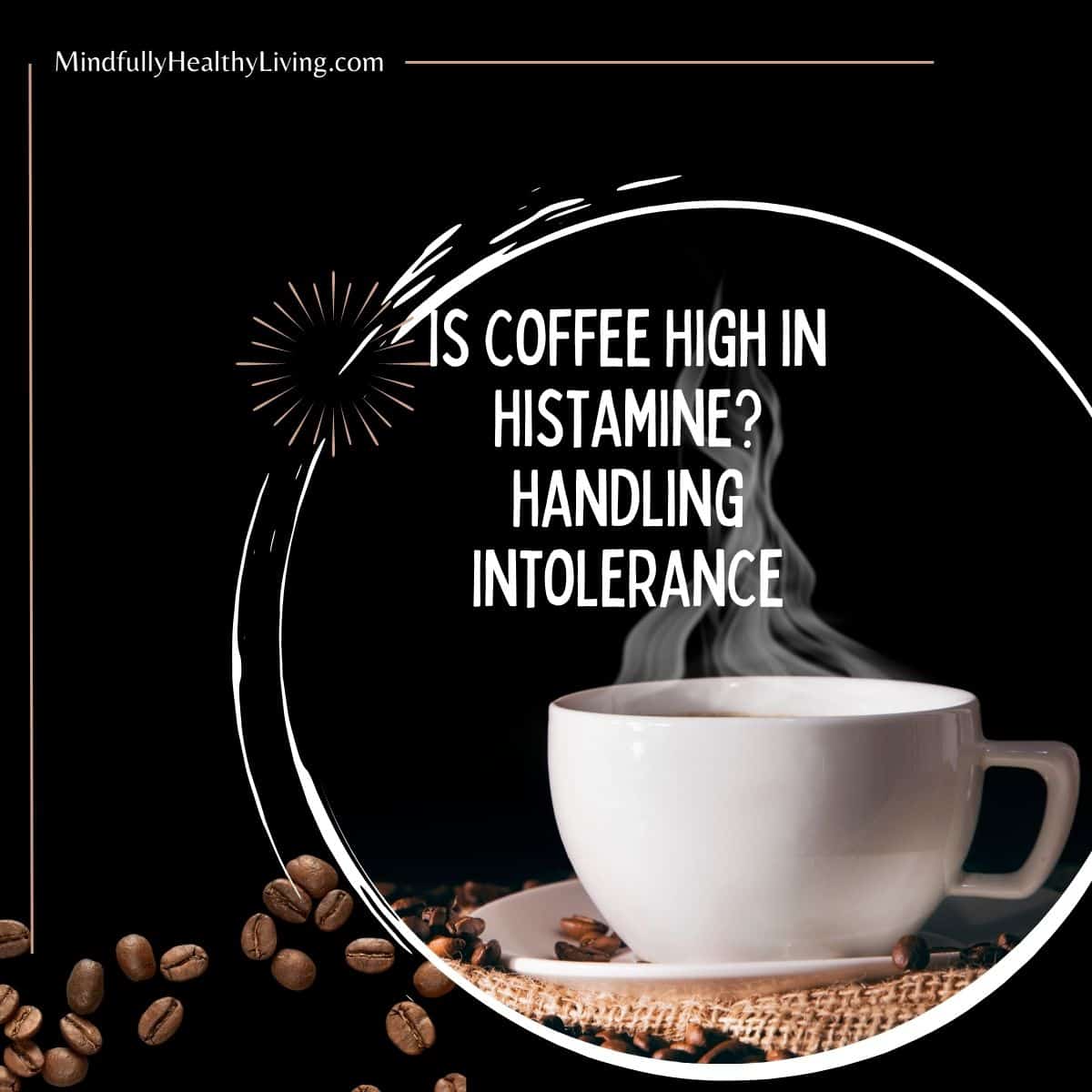

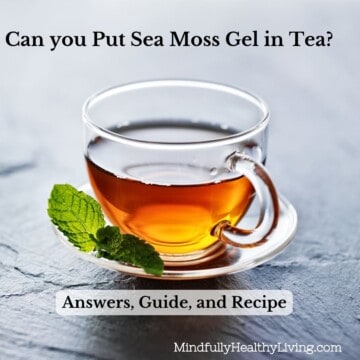
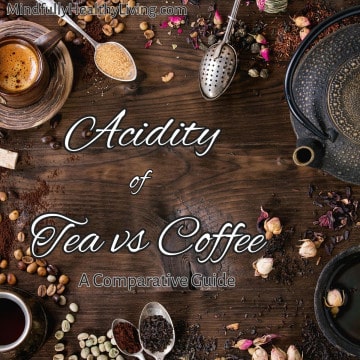

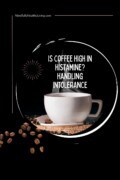
Comments
No Comments